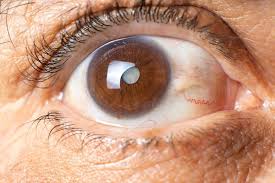PREMIUM CATARACT SURGERY
Cataract surgery at our centre in THANE & KALYAN offers state-of-the-art treatment for those suffering from cloudy vision. The clinic is known for its expert ophthalmologists and advanced surgical techniques by Phacoemulsification STITCHLESS, PAINLESS and Laser – assisted procedures in Any Types of Difficult & Complicated Cataract. Patients can select from a range of high-quality lenses, such as monofocal, multifocal, trifocal, edof and toric lenses, tailored to their specific visual needs. We ensures a comfortable and efficient experience, with a focus on successful outcomes and patient satisfaction. The cost of cataract surgery Thane Kalyan here varies depending on the chosen procedure and lens type, making it a viable option for many. Our Specialized doctor are Dr. Sanket R. Nirgude & Dr Jyoti V. Ghindani.


WHAT IS CATARACT?
Cataract surgery Thane provides advanced and reliable treatment options for those with cloudy vision due to Cataract. The procedure involves replacing the eye’s natural lens with an artificial one, often using minimally invasive techniques like phacoemulsification and laser-assisted surgery.
Cataract Surgery Thane, The natural lens is composed of water, protein & tissues. The degeneration in lens results in formation of clouds of protein resulting in lens opacity. Signs of these changes are like blurred vision, sensitivity to bright light, difficulty in identifying objectives at distance etc and may affect the quality of vision. Degeneration may be age related or because of external factors. Surgery is the best solution for cataract. Contact your OPHTHMOLOGIST.
TYPES OF CATARACT
Type | Description |
Congenital Cataract (Up to 1 Year) | Infection during pregnancy, Consanguineous Marriage, Down Syndrome, Malnutrition and also Hereditary Factor are the reasons for Congenital Cataract. symptom for Congenital Cataract. |
Subluxated Cataract in Marfan’s Syndrome(1 To 15 Years) | Dislocation of natural lens in patients of Marfan’s Syndrome. Patients of this syndrome are not satisfied with refractive glasses & need surgery. |
Homocystinuria | Dislocation of natural lens in young patients needs expert surgical hand because of short duration of anaesthesia time. |
Steroidal induced Cataract. | Side effects of prolong steroid consumption may get manifested in terms of cataract. |
Recurrent Iridocyclitis | Inflammation of some parts of eye like Iris & Ciliary Body is called as Iridocyclitis. Many time it is because of trauma or arthritis. |
Senile Cataract | Age related changes in composition of lens is termed as Senile Cataract. Replacement of suitable artificial lens (IOL) is best solution for this problem. |
CATARACT SURGERIES AND TECHNOLOGY
Broadly cataract surgeries can be divided in two groups.
1) SICS (Small Incision Cataract Surgery): Incision measuring about 5 mm is taken. Matured cataract is taken out from this incision and intraocular lens is inserted at same place. This type of surgeries require around 8 days for healing and due post-operative care is required.
2) PHACO Emulsification: This is advanced technic and surgeries are performed with highly sophisticated Phaco machines. Incision taken is small in size compared with SICS and technology facilitate use of foldable lens. Beside more accuracy it also reduces recovery period, thus allowing patient to perform daily activity earlier.
At Radhakrishna Netralay & Super Speciality Eye Hospital, State of Art Phaco machines are available. Each of them are top model in their segment. These top class Phaco machine provides surgical benefits such as, movement of Phaco tip, surgical work out at lower temperature resulting in less use of mechanical energy.
Types of intraocular lenses
Major division of IOL can be –
- a) Non-Foldable Lens:This lens is used in SICS surgery.
- b) Foldable Lens:Following types of foldable lenses are available.
- Monofocal –With this lens only one type of vision, i.e., Near or Distant is focused. However normally this lens is used to focus on distant vision.
- Multifocal –Advantage with this lens is, with single lens we can focus on Near Vision, and Distant Vision.
- Trifocal –Apart from Near & Distant Vision, this lens gives advantage of focus on Intermediate Vision.
- Toric – This lens is used to focus on Distant Vision in condition of irregular corneal curvature (This is called as ASTIGMATISM).
- Multifocal with Toric –This lens is used to focus on near and distant vision in patients of astigmatism.
Above mentioned lenses are also having their subdivision based on the properties as Hydrophilic, Hydrophobic, Spheric, Aspheric. Based on patient requirement, surgeon is advocating type of lens.

